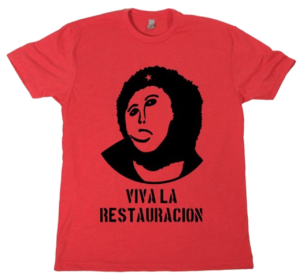The question to The New York Times ethicist was whether it is ethical to watch NFL games given the large number of brain injuries being incurred by the players. Ariel Kaminer asks Malcolm Gladwell to weigh in, given Gladwell’s authorship of an extensive piece for The New Yorker “Offensive Play: How different are dogfighting and football?” and his love of the game.
According to Kaminer, Gladwell compares football fans to fans of gladiator events. “Specifically because of the activity on the field that’s central to the game and a huge part of my pleasure, some percentage of people are going to die prematurely,” he said. “Quite prematurely.” Fan pleasure provides coaches and owners a clear reason to encourage riskier behavior, which in turn fuels fans to cheer more loudly, and so on.
However, it’s not just football fans cheering for blood. “The Hunger Games” has brought in $251 million at the box office in just two weeks. The local theater is showing the movie 14 times a day and I can vouch that the 3:25 screening on Saturday was nearly full.
Americans evidently have no problem dragging their youngsters out to see a film depicting two dozen kids savagely fighting to the death all for the amusement of garishly-dressed and made-up adults occupying a mythical capitol city. The hunger games is a two-week party for those inhabiting the capitol with endless feasts, cocktailing, and wagering on who will be the last child standing.
The 12 to 18 year olds are drafted by lottery to participate and every minute of the proceedings are televised to every nook and cranny of Panem—as in panem et circenses, Latin for bread and circuses. The districts may be poor, but there are massive Jumbotron screens available to watch the death match, 24 hours a day.
Most of these kids are poor and while a few from some districts train their whole young lives and then volunteer for the event, most are unprepared for the gory mayhem. As punishment for rebelling against the capitol and losing the ensuing wars, each district offers up a boy and girl as tribute to fight to the death.
Of course these children are made out to be heroes as they are whisked off to the capitol to “bring honor to their districts.” They get help with training and make-up and are provided the incentive to be charming so as to attract sponsors—who help throughout the competition. Think Survivor meets American Idol. They live the life of luxury for a few, short days and then are thrown into the competition to be killed.
While the kids fight for their lives, the government’s game master creates hazards and arbitrarily changes the rules, attempting to create the desired outcome. The Panem control room plays a hi-tech form of chess–or maybe its closer to the Pentagon ordering drones be deployed from Indian Springs, Nevada to blow up insurgents in Afghanistan. The actions are so removed from the killing that it seems like just a game—except for those who lose their lives and their families.
For sure “The Hunger Games” portrays a totalitarian government that doesn’t seem to be too great a leap from post-Patriot Act America. And the film’s heroine is easy to root for as she overcomes countless obstacles.
But while there is gushing about the film being libertarian, it’s hard to make that case. The state is overwhelming and despotic when the film starts and remains that way when it ends. Nothing changes. Our heroine doesn’t take her bow and arrow, go on strike, and start Hunger Gulch. The people in the districts are still starving—although now they have something to cheer about. The government isn’t overthrown. Capitalism doesn’t take root, creating wonderful goods and services.
What happens is, the heroic Katniss plays Panem’s game and wins: Because for the moment, it suits the government’s purposes for her to come out on top. And because she does, the game’s master is punished—by death. Although the homefolks in District 12 greet her with wild cheers, there is no real sense of triumph. She merely survived—and there is a sense that’s temporary.
Reportedly the book trilogy is all the rage amongst middle and high school aged kids. This is viewed as a positive development and no one is worrying about whether it’s ethical or not. Raven Clabough writes for The New American
At least in book form, it apparently has the ability to bring families together. Karin Westman, an English professor at Kansas State University who teaches this series as well as others such as Harry Potter, contends that The Hunger Games as well as the rest of the books in the trilogy are “powerful for families to share because it relates to so many primal issues such as sibling loyalty and family survival.”
Yet, in his very next sentence Clabough cautions parents not to bring small children to the movie because of the “graphic and brutal violence.”
“The Hunger Games” is not a transformative movie, but merely a reflection of America’s attitude. The latest “The Elliott Wave Financial Forecast” sees the movie as a sign that the stock market is ready to resume its post-2000 decline. The folks at EWFF point out the market turned in 2000 when Survivor took over as the nation’s most popular show from Who Wants to be a Millionaire.
Just as Survivor signaled the bearish cultural changes to come in the decade of the 2000s, The Hunger Games foreshadows the next phase. With themes of alienation, “high-stakes consequences,” government control, violence and death, the movie points to a cornucopia of bear market fare.
Meanwhile, a couple weeks ago the BusinessWire reported that Charles Schwab “released new data showing that active traders are turning more bullish and plan to invest most of their tax refunds in the stock market.”
“May the odds be ever in your favor.”

